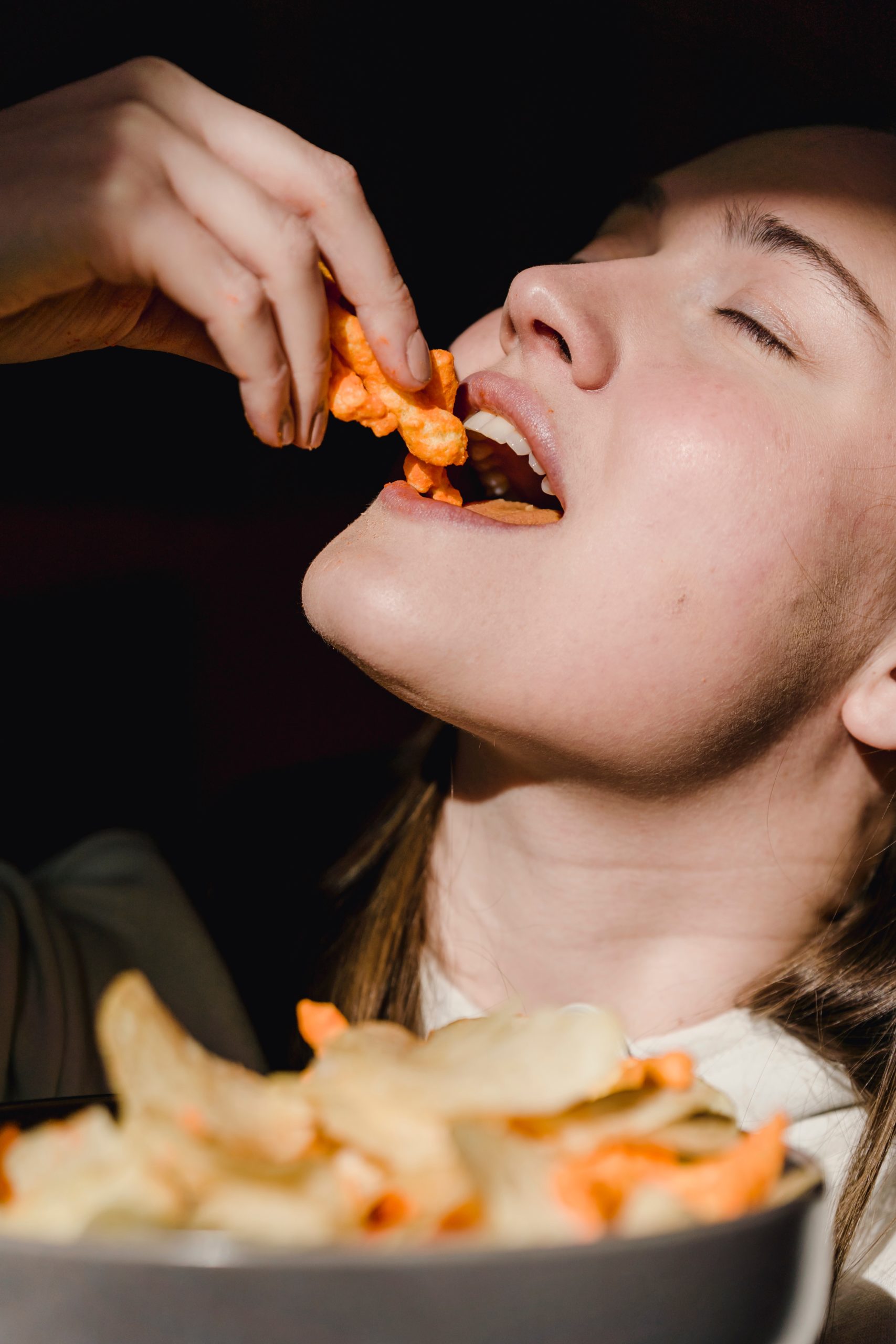
Many of us, at one time or another, have eaten beyond satiating our hunger, and not because we’re celebrating something. Oftentimes, it’s because we’re weighed down by stress, and reaching for that snack in the pantry at that exact moment just made perfect sense. And let me guess, you felt immediately better.
Stress eating or emotional eating is using food as a coping mechanism, usually to soothe stress or anxiety. This is not necessarily bad when done occasionally. However, when eating becomes your primary coping mechanism, this can lead to a host of weight and health problems. Stress eating can be quite a hard habit to break, especially if you’re continuously exposed to stress.
Here’s the lowdown on stress eating, and what you can do to break out of the habit, pronto.
Why you stress eat

How to know when you’re stress eating
It can be tricky to realize you’re stress-eating. It usually happens impulsively and unconsciously, and when the triggers arrive one after another, it’s hard to stop and check yourself.
But if you want a healthier lifestyle, here’s a helpful trick written by Steffani Sassos for Good Housekeeping.
She writes: “I like to look at cravings by whether they are coming from above the neck or below the neck.”
Real hunger, or physical hunger, is below the neck cravings. She says these cravings are not emotional. On the other hand, above the neck cravings are the opposite. They often come suddenly, and you end up not feeling satisfied after eating.
She adds: “If you give in to above the neck cravings, they may sometimes trigger feelings of shame and guilt, and you may feel like you have absolutely no control over your food choices.”
According to Sassos, differentiating between the two cravings will help you differentiate between physiological hunger and stress-triggered hunger.
Try the hunger meter
The hunger meter is a tool to determine how hungry you are. When you feel like eating, create a space between you and the food and see where you are on the meter.
The numbers and the equivalent hunger levels on the hunger meter are:
1 = Starving, ravenous, dizzy, cranky, can’t think clearly, low blood sugar
2 = Very hungry, rumbling stomach
3 = Manageable hunger; a happy place where you want to arrive at mealtime; calm and mindful about eating
4 = You could eat, but you’re not that hungry; snacky
5 = You’ve probably just eaten, and aren’t hungry
6 = The dreamy stopping place; your stomach feels happy and at peace, it’s not overly stuffed
7 = Your taste buds lose interest much beyond this point
8 = You are on the path toward full and feel anchored by your food
9 = Thanksgiving day stuffed
10 = Uh oh. Time to unbutton
To know more about the Hunger Meter, click here:

How to stop stress eating

In today’s hustling world, it would be difficult to wean yourself out of stress eating. But experts say, and with the success stories we’ve heard, it can be done.
The most important trick is to awareness. Be aware that you’re stressed or your anxiety is triggered. When you feel like binging on food, ask yourself if you’re really hungry, or just acting out. Learn to differentiate emotional triggers from real hunger. It sounds easy, but it’s difficult in practice.
You must also accept that in a perfect world, stress can be erased off the face of the earth. But it’s not. Stress is unavoidable, so you have to look for healthier ways to cool or calm down. Here are some activities you can replace stress-eating:
- Do a 15-minute walk around the neighborhood.
- There are many free meditation videos and apps online. Even 5 minutes for a first session will do.
- Practice mindful eating. This means sitting down for a meal, and focusing on eating. No gadgets. Just enjoy the meal, relish the present moment!
- Instead of food, exercise can provide a rush of dopamine too! And it will help you attain a healthier physique.
- Drink a cup of tea. Enjoy the act of preparing it. Sip slowly.
- Book yourself a massage, or enjoy aromatherapy at home.
- Every day, set aside a time for me time. Me time can range from reading a book, doodling, journaling, arts and crafts, or any hobby you enjoy for yourself, that keeps your mind off work and other responsibilities. Do this Monday to Sunday.

Experts also recommend cleaning your pantry and replacing junk food with healthier snacks like nuts and fruits. The “out of sight, out of mind” mentality works. Don’t expect to turn this habit around quickly, though. Remember, good things take time. Meanwhile, identify your triggers, take a vacation if you have to, and always be kind and gentle to yourself.
Tags
References:
https://www.healthline.com/nutrition/how-food-addiction-workshttps://www.medicalnewstoday.com/articles/320935#coping-strategieshttps://edition.cnn.com/2020/10/06/health/how-to-stop-stress-eating-wellness/index.htmlhttps://health.clevelandclinic.org/how-stress-can-make-you-eat-more-or-not-at-all/



0 Comments